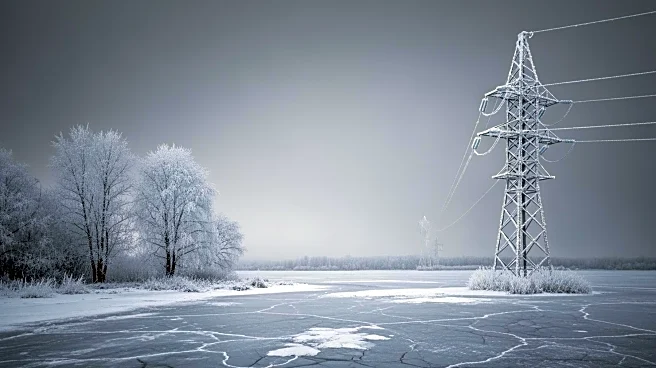What's Happening?
Ukraine is preparing for what officials describe as the 'worst winter' in its history, as Russia intensifies attacks on the country's energy infrastructure. The strategy involves targeting gas and electricity networks, particularly in eastern Ukraine,
to disrupt daily life and economic activities. Ukrainian families are facing regular power outages, and the government is warning of severe challenges ahead. The situation is compounded by ongoing military operations and a corruption scandal affecting the government, which could impact public morale and international support.
Why It's Important?
The energy crisis poses a significant threat to Ukraine's ability to sustain its population and economy during the winter months. Russia's strategy aims to weaken Ukraine's resolve and force concessions in the ongoing conflict. The situation could lead to increased humanitarian needs and pressure on international partners to provide assistance. The attacks on energy infrastructure also highlight the vulnerability of critical systems during wartime and the need for robust defenses against such threats.
What's Next?
Ukraine will likely seek additional support from international partners to address the energy crisis and maintain essential services. The government may implement measures to protect infrastructure and ensure the continuity of power supplies. Diplomatic efforts to resolve the conflict and secure a ceasefire may intensify, as the humanitarian impact of the energy crisis becomes more severe.
Beyond the Headlines
The energy crisis underscores the importance of energy independence and resilience in conflict situations. It also raises ethical questions about the targeting of civilian infrastructure during wartime and the responsibility of international actors to intervene. The situation may lead to long-term changes in energy policy and infrastructure development in Ukraine.















